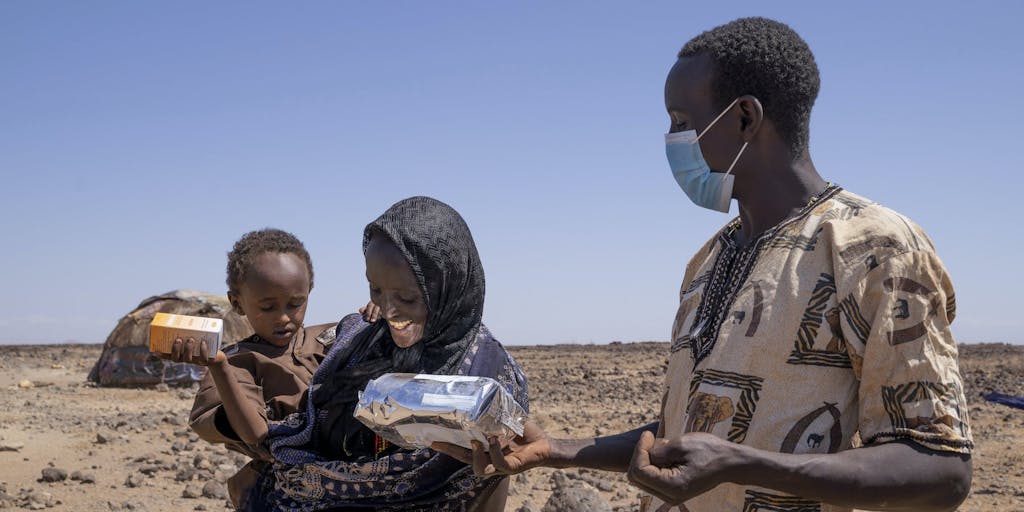Community, connection, and courage are what turn hardships into hope.
We faced many challenges in 2020. It was often times overwhelming. Instead of responding in fear, you chose to respond boldly. Time and time again, you stood with us and our globally community. We have witnessed many times how your support is building hope through community, connection and courage.
Here are a few examples of how you are turning hardship into hope:
Water for Claudia’s Community
Eleven-year old Claudia, in Bolivia says,“I had to help my mother bring water in buckets every day. I had to get up early before going to school to do it, and we didn’t have enough water for me to take a bath,” Claudia says. Claudia’s mother had to choose between using water to cook a meal or washing her children.To her distress, they often got sick with sores and diarrhea. Claudia and her sister were mocked by their classmates for not being able to take baths. With COVID-19, access to water for handwashing became critical.
Through Food for the Hungry programs, the community rallied to install a 650-liter (171-gallon) water tank in February. “Now we have water every day, even in droughts, because the tank is always full of water. We no longer have to go to the river, and I can take a bath when I need to. I no longer feel embarrassed at school,” Claudia says.

Her mother agrees, “My children want to bathe every day! I no longer have to choose whether to cook food or bathe my children. My children can go to school clean and I can wash clothes nearly every day without worry. The best change of all is to see my children happy and clean, with their clean clothes, wanting to study and succeed. That is what makes me feel cheerful and happy.”
A life-giving community garden in the Philippines
When metro Manila went into lockdown on March 16, 2020, fear rippled through the families we work with. But one group of mothers used the opportunity to fight hunger in their community through urban gardening.
With training and soil provided through FH, the Rainbow Savings Group maximized the use of walls and recycled containers to create an urban garden, growing fresh, nutritious food to eat without risking going to the market and contracting COVID-19, and cutting their expenses. But they didn’t stop there, “Whoever has something to harvest, we share it with one another,” one of the women explains. They share their harvest with their neighbors, benefiting the rest of the community. These women have a strong relationship connection through the savings group. The group serves as a support system to both their families and community.

Sharing Food in Rwanda and Guatemala
In Rwanda, “People in FH communities supported one another, especially with food items during the lockdown,” said Aloys Gashema, FH Rwanda’s Monitoring and Evaluation Coordinator.
In Guatemala, “Some families have shared their crops from their own gardens, with families that don’t have enough,” said Paola Cardona, FH Guatemala’s Communications Coordinator.
Handwashing Stations in Burundi
FH encouraged communities to wash their hands frequently because of coronavirus. As a result, community leaders started adding handwashing stations around their homes and common areas to encourage frequent hand washing. FH Burundi staff member Prudence Nahinguvu, Design Monitoring and Evaluation Officer, shared the example that while families had tippy taps installed outside their latrines, they realized they should be washing their hands more often than just after using the bathroom. So families began putting handwashing stations at the door to their homes, and especially using them to wash their hands when coming or going out of the house.
Hurricane Eta and Iota Recovery in Guatemala and Nicaragua
After Hurricane Eta devastated many parts of Central America in November, we began relief efforts with your generous support.
In Nicaragua, Tens of thousands of families flocked to temporary shelters and watched the rivers rise, roads, homes, and crops sustained heavy damages. In Guatemala, the rains washed away crops, livestock and roads, making it difficult to bring aid to isolated communities. We also received the heartbreaking news of the death of one of our sponsored children and his mother. Please keep the family in your prayers as they recover.
We used many options to get food, blankets, and emergency supplies into communities devastated by the hurricane, including by foot, motorcycle, and even by helicopter.

After distributing food and shelter materials, we will be helping families by replacing lost farm tools, seeds, and livestock; providing short-term cash-for-work opportunities to replace lost employment; rehabilitating damaged homes; and helping restore access to clean water.
The road to recovery will be long, but with your continued support, we know that these communities will rebuild stronger than ever.
Continuing with Community, Connection and Courage
When things seemed darkest, you chose to stand by our communities around the world in 2020. From all of us at FH, thank you for being a blessing to so many!
As we begin our 50th year as an organization, we believe God calls us to respond, moving courageously into the chaos of the world, facing the challenges of a new year with a whole-hearted hope that reflects His enduring love for us. So let’s go forward with community, connection and courage to continue turning hardships into hope.
See More Stories of Hope
What People in FH Programs Are Grateful For
Chickens, Pigs, and Pencils: How Simple Things Create Big Opportunities


